
views
Getting Your Comic Syndicated

Search for a comic syndicate. Before you can submit your comic to a syndicate, you'll need to find one to work with. Comic syndicates will sell your comic to newspapers, allowing your comic to reach a large amount of readers. Syndicates look for comics that will engage a wide range of readers and have a long lifespan, similar to comics like Garfield or The Far Side. You'll want to find a syndicate that you think your comic would fit in well with. Try searching online for popular comic syndicates to get started. You can also try looking into some of the following major comic syndicates: Creators Syndicate King Features Syndicate Washington Post Writers Group Tribune Media Services United Media
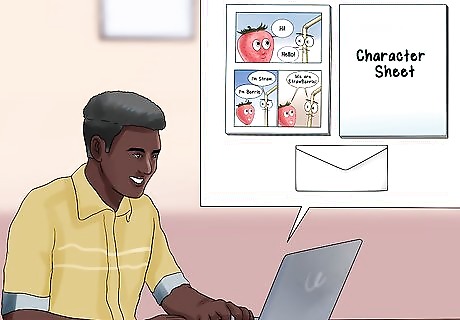
Review the syndicate's submission policies. Each syndicate will have their own guidelines for comic submissions. You will need to follow these guidelines exactly to get your comic published. Failure to follow these guidelines may result in your comic being rejected. Make sure you fully understand and adhere to a syndicate's submission guidelines when you are submitting your comic. For example, you may need to submit a certain amount of your comic strips. You may need to print your comics out at a certain dimension or in a certain format. The syndicate may require you to send your submission by mail. You'll likely need to submit a cover letter or other documents that detail your comic.

Understand what the syndicate is looking for. Every syndicate will have it's own unique qualities that they are looking for in a comic. You'll want to make sure that your comic and your skills match the requirements that are put out by the syndicate. You should feel that your comic meets the syndicate's needs before you consider submitting it. Your comic should be unique and represent your own sense of humor and style. Some syndicates, such as King Features, will prefer good writing over art. However, having great art is still important. The comic you submit should be high quality and should be capable of maintaining that quality over time.
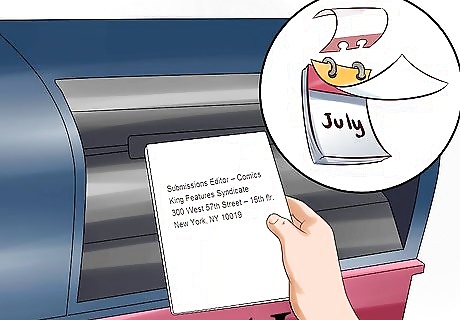
Submit your comic and wait for a response. If you feel confident that your comic would be a good fit with a syndicate, it's time to submit it. Carefully follow the submission guidelines to ensure that your comic is reviewed. The length of time it takes for your comic to be reviewed will vary, depending on the syndicate you're working with. If the syndicate liked your comic, they will make contact with you and discuss syndicating it. If you don't hear back from the syndicate, it's likely your comic was rejected. Generally, you will hear back within 2 to 3 months if the syndicate wants to work with you.
Self-Publishing Your Comic
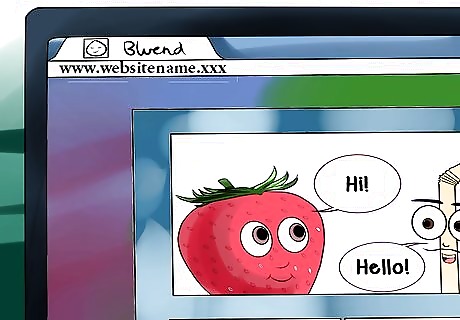
Publish your comic on your own website. Uploading your comic to a personal website is a simple way to self-publish it. You'll retain full control over your comic and can work at your own pace when creating and publishing new comics. However, you'll also be responsible for every aspect of making your comic popular, monetizing your comic and generating income. You can upload your new comic strips at your own schedule. You will retain full creative and legal control over your material. You will need to work hard to attract readers and build a community around your comic.
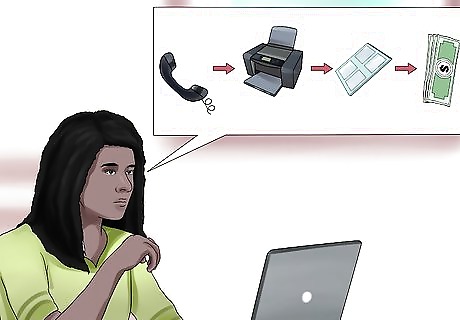
Publish your comic using on-demand printing. If you have a collection of comics ready to go, you may consider offering that collection through on-demand printing services. These services will allow readers to order a copy of your comic book whenever they want. Printing on-demand allows you to bypass issues like building up a stock of your printed comic books or shipping. Uploading and selling your on-demand cartoon book will usually be free. Most on-demand printing services will take a portion of the profit from each book sold. Any time an order is placed, your comic book is automatically printed, bound and delivered to the customer.

Become self-syndicated. You don't need to work with a syndication service in order to have your comics printed in newspapers. It's possible for you to contact newspapers directly and work out a publishing deal. This method will allow you to keep all rights to your comic and retain the full profit that your comic generates. However, you'll need to demonstrate your comics value and sell to multiple newspapers by yourself. Having an established fan base behind your comic is a good way to demonstrate the popularity of your comic. If you published your comic online, you can present your website's traffic as evidence that the comic has a large amount of fans. If you've self-published a comic book, you could show how successful your sales have been.
Increasing the Odds of Getting Published

Avoid some common cartooning mistakes. Although you are free to create your comic in a way that you feel is best, there are some common mistakes that cartoonists can make. Avoiding these mistakes will help boost your chances of getting your comic published. Take a look at some of the common comic mistakes to help your comics stand out: Focus on defining your characters instead of creating unique characters. Allow your comics to cover a large variety of topics. Avoid focusing on any topics or settings that are too narrow. Keep your lettering legible. Once you've finished a comic strip, shrink it down to print size to make sure it's legible and readable. You'll want to use pens, brushes and waterproof ink to create your comics. Don't create a comic that is too close to another comic's style or content.
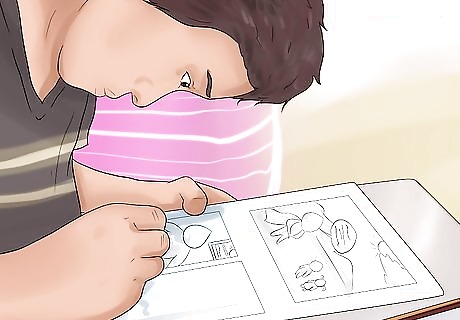
Never stop practicing. Whatever your level of skill in creating comics, you'll always want to be practicing. Constant practice and time spent creating comics will allow you to sharpen your skills, improve your comics and increase your chances of getting published. Make sure you are constantly working to improve your skills and getting in plenty of practice making your comics. Most successful cartoonists are people who constantly practice creating their comics. Pay attention to areas of your comics that could use improvement. For example, your writing may need some more work or maybe your lettering could be a bit neater.

Read other successful cartoons. One simple way that you can improve your comic creating skills is to read other comics. Reading other comics will let you know what works and what makes a comic a success. Keep in mind, you won't want to copy other comics. However, studying the elements of successful comics can help you implement them into your own and increase your chances of getting your comic published.

Don't give up. Getting your comic published can take a lot of hard work. Your comic may be rejected multiple times before being approved for syndication or publication. If you are self-publishing, be ready to work at building up your reader base and promote your comic. Either way, publishing your comic will take a lot of time and effort, so stay positive and keep working towards your goal. Many syndicates receive thousands of submissions every year and only select a few. Take any feedback you get seriously. Try to improve your comic based on that feedback. Don't be afraid of rejection. It's normal to have your comics rejected initially.




















Comments
0 comment